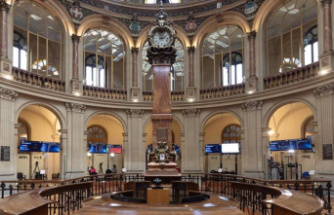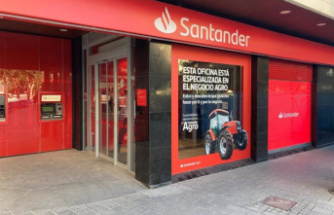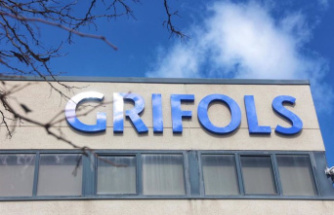A Minneapolis technology company has sued the city of Chicago for banning advertising inside the private cars used by Uber, Lyft and other ride-share company drivers.
Vugo, founded in 2015 and looking to expand its digital advertising business to ride-sharing vehicles here, filed a federal lawsuit in Chicago on Thursday saying that the city's ban on ads in and out of ride-share operators' vehicles violates the company's constitutional rights to free speech and equal protection. By contrast, ads are allowed in and on taxis.
"These regulations unfairly favor the taxi companies at the expense of ridesharing drivers," said Jeffrey Schwab, attorney for Vugo, in a statement. Schwab is an attorney for the Liberty Justice Center, a non-profit legal organization that favors limiting government.
"There is no difference inherent in those services that justify banning advertising in one while allowing it in the other," Schwab told reporters at a news conference.
Vugo is a mobile media network that allows rise-share drivers to display ads, news and entertainment on a tablet attached to the back seats of their vehicles, similar to the types of displays in the back of cabs.
The content adjusts for the type of trip that is being taken, that is, if a person is going to a sports event, ads "cater to that type of experience," said Rob Flessner, co-founder of Vugo. Drivers receive 60 percent of the ad revenue, he said.
Vugo estimates that drivers can earn an average of $100 a month from the ads, according to the lawsuit.
Businesses face treacherous path after 'Delete Uber' Leonid BershidskyThe Uber boycott sparked by the company’s refusal to join an anti-Trump strike poses a question many U.S. businesses will have to answer: Do they openly stand with those of their customers who abhor President Donald Trump’s policies or does it make more business sense for them to stay neutral?
...The Uber boycott sparked by the company’s refusal to join an anti-Trump strike poses a question many U.S. businesses will have to answer: Do they openly stand with those of their customers who abhor President Donald Trump’s policies or does it make more business sense for them to stay neutral?
... (Leonid Bershidsky)Flessner said at the news conference that about 8,000 drivers currently use Vugo in Los Angeles, San Francisco and Minneapolis to supplement their income, which has declined in recent years because of increased competition.
"Drivers absolutely love Vugo," Flessner said. "They love the opportunity to make more money." He said the company hopes to expand to 20,000 to 25,000 drivers by the end of the year.
Bill McCaffrey, a spokesman for the city's law department, had not yet seen the lawsuit and had no comment.
Chicago regulations are generally less stringent for ride-share companies than they are for cabs. For example, cab drivers must get criminal background checks that include fingerprinting, while ride share drivers do not.
Lyft rides a wave of anger to the top of the App Store Hayley TsukayamaThese days, everything is political: even the ride-sharing app you use.
This weekend, Uber and Lyft — and their reactions to the Trump administration's immigration order — illustrated how important a company's political views have become to consumers. Lyft took a public stand against the order...
These days, everything is political: even the ride-sharing app you use.
This weekend, Uber and Lyft — and their reactions to the Trump administration's immigration order — illustrated how important a company's political views have become to consumers. Lyft took a public stand against the order...
(Hayley Tsukayama)Harry Campbell, who runs a popular blog for ride-share drivers called "The Rideshare Guy," said that the No. 1 complaint he hears from drivers is that their incomes have gone down. A recent survey the blog conducted of 1,100 drivers found that Uber drivers make about $15.68 an hour, while Lyft drivers, who can get tips, make about $17.50 an hour.
After expenses, ride-share drivers can get as little as $10 to $12 an hour, Campbell said. Even getting a dollar or two more per hour from ads could significantly boost driver income, he said.
"I'd hope they'd be allowed to move forward to Chicago and provide drivers with extra income," said Campbell. He said Chicago is the country's second-largest ride-share market, after New York City.
The initial idea for the application came when co-founder James Bellefeuille worked as an Uber driver in Chicago, Flessner said. An restaurant owner suggested that Bellefeuille carry menus in his car, and Bellefeuille found that passengers would choose the restaurant because they liked what was on the menu.
Vugo chose to locate in Minneapolis, rather than Chicago, because of the ad ban, Flessner said.
mwisniewski@chicagotribune.com
Twitter @marywizchicago
Our editors found this article on this site using Google and regenerated it for our readers.













